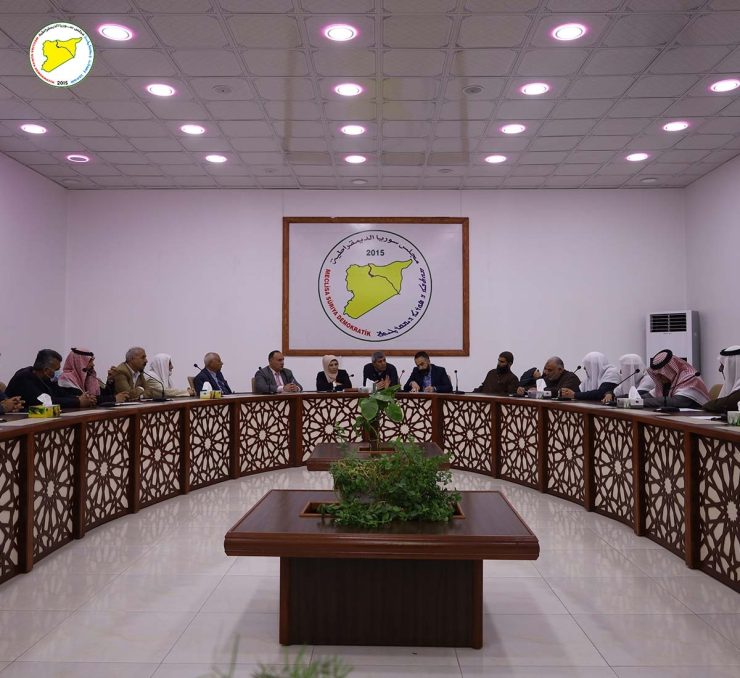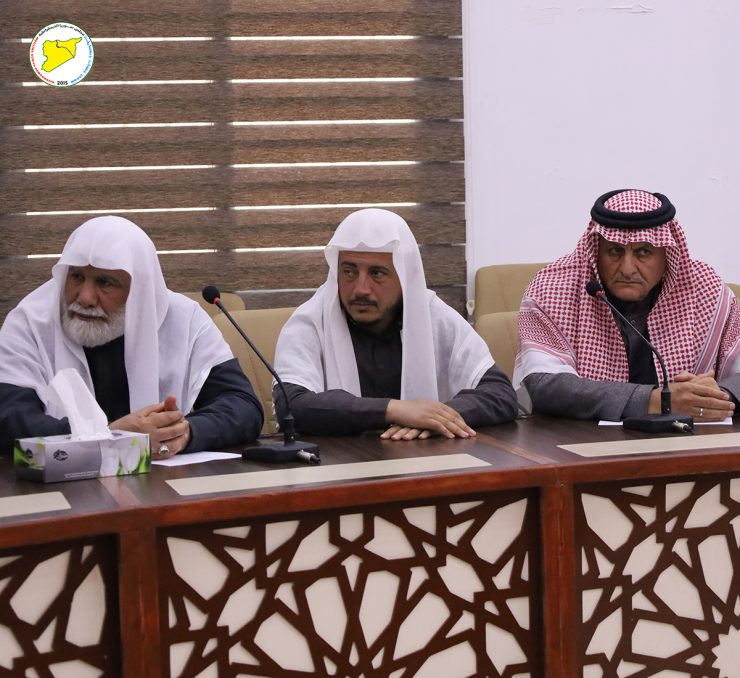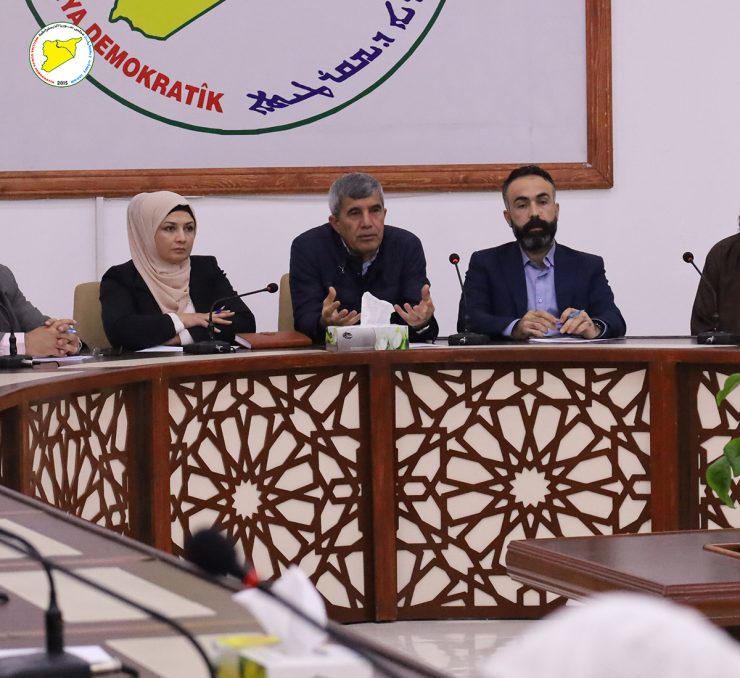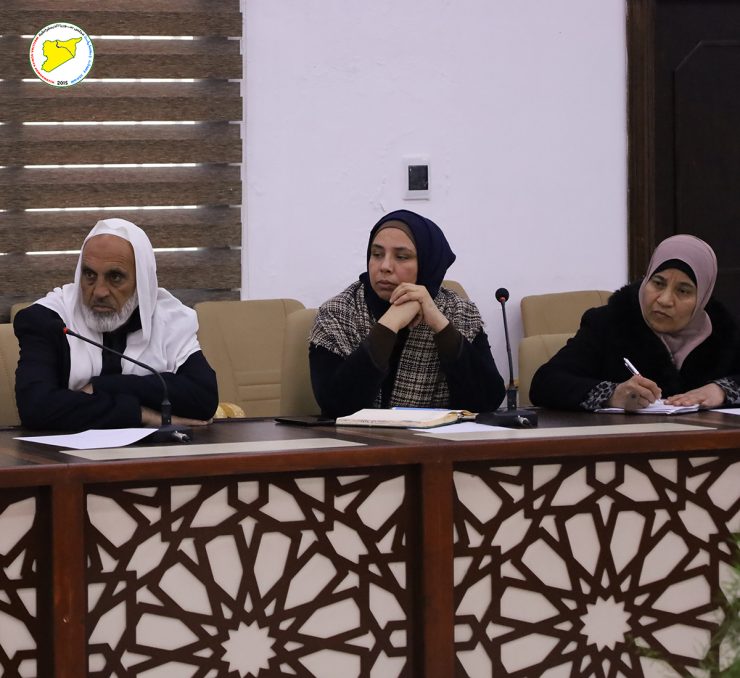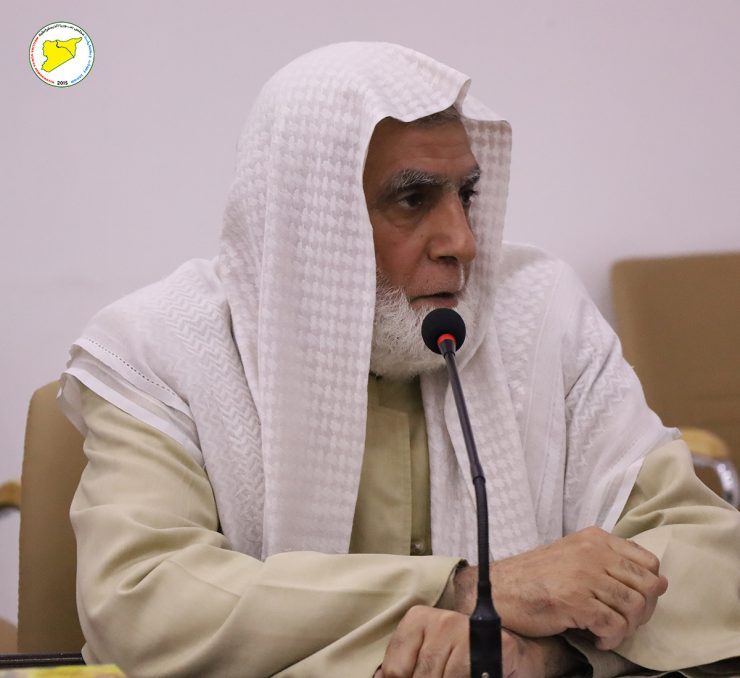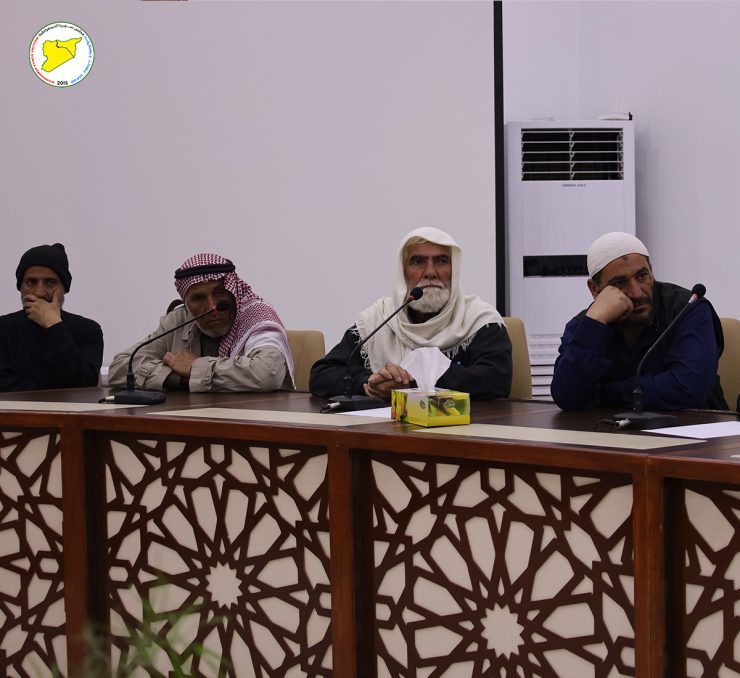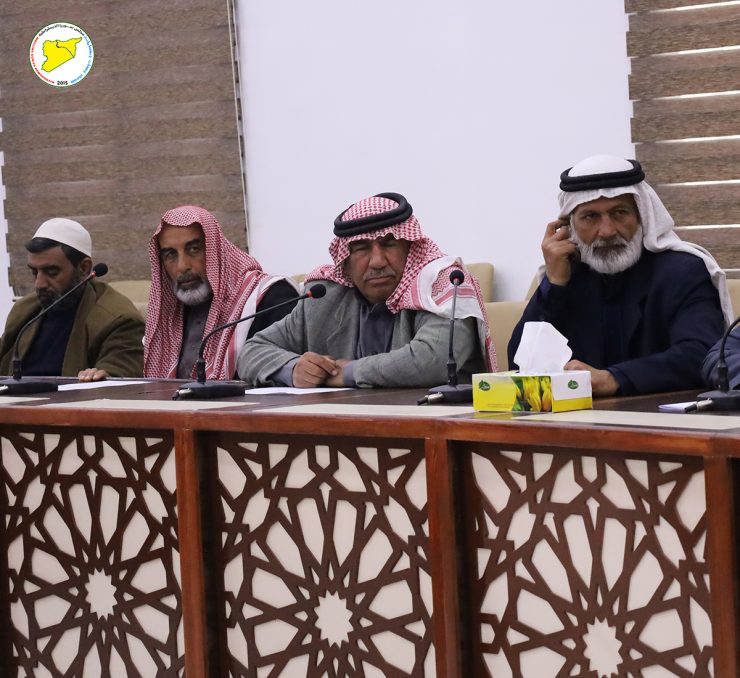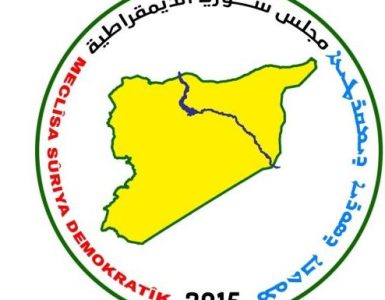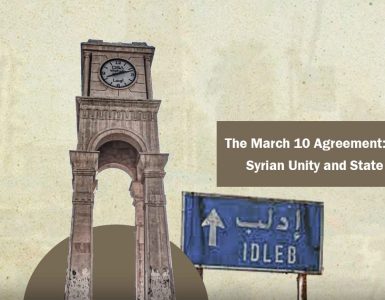The Public Relations Office of the Syrian Democratic Council (SDC) held on Saturday a dialogue seminar in the city of Raqqa. The seminar was attended by an elite group of religious leaders, imams, and mosque preachers from Raqqa and its countryside, as well as representatives from the Religious Affairs Foundation and members of the “Al al-Bayt Association”. The purpose of the seminar was to discuss the crucial role and importance of religious institutions.
The participants in the seminar observed a minute of silence to remember the martyrs of freedom. Subsequently, they were welcomed, and the latest local, regional, and international political developments were reviewed. Also, the participants discussed plans for implementing the outcomes of the SDC’s Fourth Conference and the diplomatic strategy of the SDC’s Relations Office for dialogues inside Syria and abroad.
Hassan Muhammad Ali, Co-chairman of the SDC’s Relations Office, emphasized the significance of role played by religious leaders in rebuilding national unity and fostering relations among Syrians. Additionally, he highlighted the importance of a tolerant religious discourse and strengthening shared matters within Syrian society.
Muhammad Ali further underscored that the SDC represents hope for Syrians. Through dialogue with all parties, it functions as a national framework for resolving the Syrian crisis.
He also emphasized the potential for collaborative national efforts, based on rationality, wisdom, open dialogue, and the rejection of hatred and extremism. The Syrian society members are capable of proposing solutions independently, free from external agendas, according to Muhammad Ali.
Amal Dada, Co-chairwoman of the SDC’s Relations Office, stated that religious leaders bear a heavy burden in the current stage, especially after the extremist ideology propagated by the terrorist group (ISIS) in this region. “The religious discourse and strengthening shared matters are essential mechanisms for unifying Syrians and maintaining civil peace in order to achieve a political solution that would meet the aspirations of the Syrian people in the democratic transition,” Dada stated.
Also, Sheikh Ali al-Saleh, the preacher at Abu Huraira Mosque, discussed the historical and ethical values that are fundamental to the Muslims and manifest in their interaction with other peoples.
Abd Saeed al-Faraj, Mufti of Raqqa, called for the revival of the Charter of Madinah to build the country and confront alien ideologies that distort the true principles of Islam.
Sheikh Hussein al-Jasim, Preacher of al-Ansar Mosque in Raqqa, highlighted the importance of harmony among Syrians. Meanwhile, Sheikh Abdullah Amin al-Hamidi, Head of the Al al-Bayt Association, summarized the provisions of the Charter of Madinah, including coexistence, non-coercion in religion, promoting love, tolerance, and avoiding betrayal. The charter comprises forty-seven articles.
The seminar witnessed numerous contributions that supported the SDC’s project for reconciliation and unity among Syrians. Participants emphasized the need to focus on development of women, youth, education, and justice. Additionally, religious leaders were urged to play a greater role in disseminating human values and principles.


